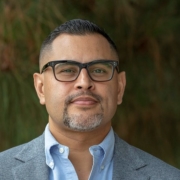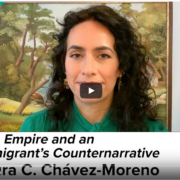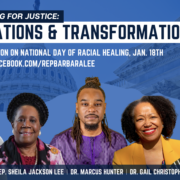LA Social Science Summer Course Previews: Anthropology Department Courses in 2020
Summer 2020 starts this month, and LA Social Science will continue to highlight some of the summer courses being offered within the Division of Social Sciences at UCLA.
UCLA summer courses are open to BOTH UCLA students and NON-UCLA students. All Summer 2020 courses will be offered online due to the COVID-19 pandemic. You can enroll as long as you are 15 years of age or older by the first day of summer and you do NOT have to be enrolled in an academic institution in order to participate in UCLA Summer Sessions. For more information, click HERE.
UCLA’s Department of Anthropology has several summer course offerings. Check out the course list below. Enroll HERE TODAY!
Session A:
ANTHRO 142P – Anthropology of Religion
Survey of various methodologies in comparative study of religious ideologies and action systems, including understanding particular religions through descriptive and structural approaches, and identification of social and psychological factors that may account for variation in religious systems cross-culturally.
ANTHRO 143 – Economic Anthropology
Introduction to anthropological perspectives for interpretation of economic life and institutions. Economic facts to be placed in their larger social, political, and cultural contexts; examination of modes of production, distribution, and consumption of goods and services in their relation to social networks, power structures, and institutions of family, kinship, and class.
ANTHRO 153 – Language and Identity
Language as social phenomenon. Introduction to several angles from which language use can be critically examined as integral to interactions between individuals and between social groups.
Other Session A offerings:
ANTHRO 3 – Culture and Society
ANTHRO 110 – Principles of Archaeology
ANTHRO 124S – Evolution of Human Sexual Behavior
ANTHRO 133 – Anthropology of Food
ANTHRO 137P – Anthropology of Deviance and Abnormality
Session C:
ANTHRO 126P – Paleopathology
Evidence of disease and trauma, as preserved in skeletal remains of ancient and modern human populations. Discussions of medical procedures (trepanation), health status, ethnic mutilation (cranial deformation, footbinding), cannibalism, and sacrifice and roles such activities have played in human societies.
ANTHRO 132 – Anthropology of Environment
Environmental anthropology explores relationship between complex human systems and environments in which they are entangled. Examination of how people impact and are impacted by their environments, and how relationships between people are negotiated through management of place and space throughout time. Traces multiple theoretical lineages, beginning with early work in cultural ecology and including political ecology, environmental history, contested ontologies, and contemporary environmental justice. Through engagement with grounded, multimodal ethnographies (in text, film, and new media), study of historical movements of people across ecosystems, politics of managing common goods resources such as rivers and atmosphere, bioeconomics of environmental contamination, and development of climate change adaptation strategies in hard-hit areas.
ANTHRO 138P – Field Methods in Cultural Anthropology
Introduction to skills and tools of data ascertainment through fieldwork in cultural anthropology. Emphasis on techniques, methods, and concepts of ethnographical research and how basic observational information is systematized for presentation, analysis, and cross-cultural comparison.
Other Session C offerings:
ANTHRO 1 – Human Evolution
ANTHRO 4 – Culture and Communication
ANTHRO 135 – Visual Anthropology
ANTHRO 146 – Urban Anthropology









